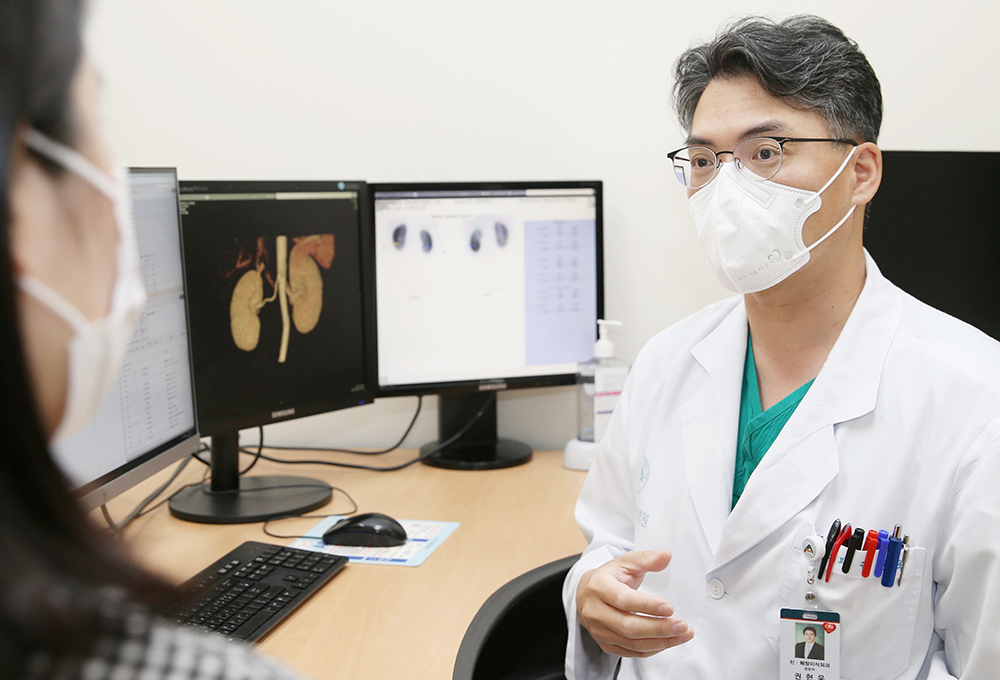-
- Global AMC MENU
- NEWS
- HEALTH
- PEOPLE
- Introduction
HEALTH
Low-dose administration of pretreatment medication for kidney transplantation is irrelevant to cancer occurrence
2022.06.22

Rituximab is used during the pretreatment process of high-risk kidney transplantations to eliminate rejection reactions such as blood type mismatch or tissue incompatibility. It was suggested from recent research that patients who received kidney transplantation may experience an increased risk of cancer development due to side effects of rituximab. However, recent research publication indicated irrelevance between low-dose administration of rituximab and cancer development.
A research team led by Professor Hyunwook Kwon of the Division of Kidney and Pancreas Transplantation studied 2,895 patients who received kidney transplantation during the period of January 2008 and January 2018 to compare cancer incidence based on whether the patients received low-dose rituximab treatment. The patients were divided into 622 patients who received rituximab preoperatively and 2,273 patients who did not, and were subject to a follow-up observation for 72 months and 83 months, respectively, on average. As a result, cancer incidence was approximately 2.9% for rituximab untreated group and 1.9% for rituximab treated group, indicating no significant difference between the two groups.
While high-dose administration of rituximab was found to be associated with high cancer incidence in research findings so far, little research has been conducted on low-dose administration. This finding is meaningful in that cancer incidence can be minimized if careful control can be exercised to use a low dosage of rituximab in the pretreatment phase of kidney transplantation.
The research findings were recently published in the ‘Journal of the Korean Surgical Society.’












